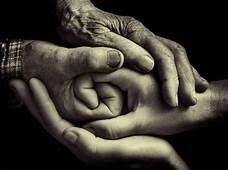Mar 14 Worship: Lenten Sunday – Beatitudes
Lenten Devotional – Week 4
Matthew 5: 7-8
“Blessed are the pure in heart, for they will see God.”
“Blessed are the peacemakers, for they will be called children of God. ”
SUNDAY, Mar 14: BLESSED
Some translators use the word ‘happiness’ as another meaning for ‘blessed.’ As if the blessing confers a state of happiness upon those who have been named.
Yet in the upside-down world of the Beatitudes, often those who are named as blessed are also those grappling with complex personal and societal challenges. They’re living in or addressing poverty. They’re naming weaknesses and faults and vulnerabilities. They’re facing injustice and oppression. They’re living in times of lack and inequality. Happiness would seem a far-off state of being.
In this week’s Beatitudes, the blessing falls on those who are pure of heart and those who choose peace. These are not people basking in contentment and easy living. These are people who are walking the Way in the midst of extremes. They’re choosing love over hate. They’re choosing a path of resistance and nonviolent revolution. They’re addressing personal problems and societal wrongs.
‘They’ is also ‘us.’ Remember, we’re often the folk who strive for such values. We want to live by these ideals of purity and peace-making. At our best, we act and speak in support of these characteristics.
Yet we know that we often don’t feel pure. Or peaceful. Or happy.
We fall short. Our hearts fall short. The world falls short. Rather than feeling happy, we’re disappointed. Frustrated. Angry. Afraid.
Perhaps it’s more helpful to use the word ‘joy’ rather than ‘happiness’ as the promise of ‘blessedness’. Happiness is like weather: fleeting and seasonal. Always-changing. Joy is the sky: deep and eternal, unaffected by the winds and rains, because it springs from a deeper, higher place. How else do we explain accessing humor, peace, hope, and joy in the hardest, most life-threatening times? Abiding joy is there: growing, rising, connecting us to the sacred love of God.
Yet in our daily living, we’re more aware of the weather than the sky behind it. We feel the immediate effects of emotions and circumstances, and question the blessing.
We’re susceptible to changing conditions. Being blessed — or happy — may not seem like a tangible, deliverable, real promise. A state of being available to us, here and now. Most of the time, we’ll struggle to imagine how the conditions named in the Beatitudes can lead to a blessing.
After all, we fall short of deserving such gifts. How can they possibly be true? That’s the beauty of the Beatitudes. Instead of asking us to be perfect, the Beatitudes bless us as we are: bundles of hope, desire, and aspiration. We’re full of potential, but we’re definitely not idealized versions of humanity.
The One who blesses us, also recognizes the value of our hunger. Our yearning. Our motivation. Our turning toward God. Our almost-honesty. Our love-seeking selves. Our desire to do what’s right. Our longing for peace.
By now, the Beatitudes have modeled for us, over and over, that we’re usually in a position to need more than we can give. We’re broken open. It’s that vulnerability that permits us to receive what is offered.
We are enough, just as we are. Beloved. Chosen. Claimed. Adopted. Welcomed. Wanted. As humans, we may reflect each of these Beatitudinal conditions and characteristics at different times in our lives. God will work through us, imperfect as we are, if we simply receive the blessing of love being poured out for us. — Rev Gail
MEDITATIONS:
Blessed is the influence of one true, loving human soul on another. — George Eliot
I’m blessed and I thank God for every day for everything that happens for me. — Lil Wayne
Blessed are those who give without remembering and take without forgetting. — Elizabeth Bibesco
Life is filled with tragedy, with long patches of struggle and with, I think, beautiful bursts of joy and accomplishment. Blessed with those moments, you just try to relax as much as possible and focus on the little things, like the joy of changing your baby’s diaper. — David Dastmalchian
Challenge or Question: Identify a blessing within your life. One aspect of your life for which you are grateful. Give thanks for it. Say a prayer, write it in a journal, or light a candle to acknowledge this blessing.
Lenten Devotion – Sat, Mar 13: MERCY
Reciprocity is once more at the heart of this blessing. We are the people who have witnessed and responded to others’ pain, hurt, and suffering. In turn, we are the ones who need — and hopefully receive — compassion and kindness.
It’s easier to be on the giving end of this blessing, than on the receiving end. It’s difficult to accept gifts of kindness, mercy, compassion, and forgiveness. After all, that puts us in the position of being vulnerable. Needing someone or something else. We don’t easily admit to being in such a position; our culture valorizes being strong and independent and coping alone, without asking for help.
These Beatitudes remind us that we’re quite human. Not nearly the towers of strength we try to be.
Remember, God is blessing a human society and our human condition. The Beatitude acknowledges that we suffer and serve each other imperfectly.
We already know that we fall short of showing mercy at all times. We simply embody it, as best we’re able, in our daily living. Along the way, we’ll hurt someone’s feelings or overlook someone’s suffering. We may fail to act when we might have alleviated trauma or advocated to mitigate injustice.
Yet the blessing, and the promise, is that we’ll keep trying. We’ll strive to do the next right thing.
In our mortal lifespan, we’ll certainly experience pain and loss ourselves. We’ll need help, support, kindness, compassion, justice and forgiveness. Often we’ll receive what is needed. Sometimes it will arrive in surprising forms and resources, or show up on a schedule other than the one we consider to be ideal.
Yet we know, because we’ve all been disappointed, that sometimes what we need doesn’t come. Not in time. What happens if we ask for help, and don’t receive it? Does that mean we’re not among the blessed?
In fact, just the opposite. The blessing remains true. In our need, we reclaim the power to offer compassion and mercy to others who apparently also need it. Sometimes that involves those who hurt and fail us. Thus, when we’re in need of kindness and compassion, and it doesn’t come to us, we may find ourselves once more in the role of giving compassion to those who ought to have extended it to us.
Please note that all of these aspirations: peace, forgiveness, and justice, are processes. They unfold over time. They may recur in cycles. And they should be done with care to mitigate self-harm. We may have to revisit them over and over, and do the work, again, to both offer them and to accept them into our lives.
Along the way, we cannot fix everything that is wrong in the world. Nor can another person address all the issues that may arise in our own lives. Yet we can support each other. We can look, with renewed clarity, and recognize the holy presence of God showing up as our family, friends or neighbors … or sometimes strangers … just when we needed tender and tenacious care. — Rev Gail
MEDITATIONS:
The power of just mercy is that it belongs to the undeserving. It’s when mercy is least expected that it’s most potent—strong enough to break the cycle of victimization and victimhood, retribution and suffering. It has the power to heal the psychic harm and injuries that lead to aggression and violence, abuse of power, mass incarceration. ― Bryan Stevenson
The beatitude suggests that we know mercy because we have been given it. And we have been given mercy because we need it. — Martha Stortz
There is a very deep connection, emphasized in scripture, between one’s relationship with God and one’s relationship with others. Closing one’s heart to a brother means automatically closing one’s heart to God and his grace, while opening one’s heart to another ss a sure way of opening one’s heart to God and his abundant blessings. — Jacques Philippe
Challenge or Question: Identify a time when you had to ask for help. What was that like? What did you learn about yourself? How did it change your ability to request and receive compassion and supportive care from others going forward?
Lenten Devotional – Fri, May 12: MERCIFUL
Now the Beatitudes take a turn. Who are the merciful? They would seem to have some power. Some agency. Some choice.
What is mercy anyway? John Stott says, ‘Mercy is compassion for people in need.’ Another scholar substituted the word kind in lieu of merciful. The Message’s contemporary wording of the Gospel reframes this Beatitude as ‘You’re blessed when you care. At the moment of being ‘care-full,’ you find yourselves cared for.’
The Barnes commentary says those who receive this Beatitude are, ‘those who are so affected by the sufferings of others as to be disposed to alleviate them.’ Jacques Philippe expands these ideas. He writes, ‘The fifth Beatitude concerns all aspects of mercy, of course, not just forgiveness. It applies to those forms of the goodness, love, benevolence, patience and mutual support to which the New Testament so often summons us.’
Are we self-less in our mercy and caring? It’s okay to feel good about caring. As humans, we’re less likely to act solely for idealistic purposes. It helps when we’re rewarded by feeling good about what we’re doing.
That experience of satisfaction — of gaining a sense of purpose — plants the seed to continue in such a direction. Martha Stortz explains it this way, ‘So often love begins in narcissism: the heart turns in on itself. But over time grace straightens your tightly coiled affection so that it reaches beyond the self to another and then through the other to God, the source and spirit of all loving.’
Of course, it is also essential, over time, for our small acts of mercy to be separated from any expectation of appreciation or acknowledgement from the one who receives our kindness. Not all people on the receiving-end of kindness and compassion are able or willing to accept it or give thanks for it. Being merciful, in conditions where people are unable to reciprocate, or even acknowledge the efforts we make, can be exhausting. Ask any care provider in difficult settings such as homeless shelters, mental health units, nursing homes, and other such places.
At such times, we must lean on the ethical choice we’ve made, and find our strength and resilience outside the compassionate exchange. For Christians, this comes from leaning on Godself. Jacques Philippe says, ‘Thus, to be free and happy, we must have the courage to tell ourselves “No one owes me anything.” Not those who harmed me, because I’ve forgiven them, and not those to whom I’ve done good, because I want to love them freely.’
This cultivation of resilience, of being able to offer mercy even when none can be returned to you, mirrors the blessing itself. We have been given this blessing, without any way to earn it or deserve it. It is given out of a deep and holy love.
Our first choice is to open ourselves to this blessing. Accept it as the gift it is. We didn’t ask for it. We didn’t expect it. Some of us may continue to think we don’t deserve it. By now, during Lent, hopefully you’ve been honest enough with yourself to realize that each of us — you and me — urgently needs mercy. Here it is, being offered. — Rev Gail
MEDITATIONS:
There is a strength, a power even, in understanding brokenness, because embracing our brokenness creates a need and desire for mercy, and perhaps a corresponding need to show mercy. When you experience mercy, you learn things that are hard to learn otherwise. You see things you can’t otherwise see; you hear things you can’t otherwise hear. You begin to recognize the humanity that resides in each of us. ― Bryan Stevenson
A rabbi should not despair if people do not do as much as they should. Every parent has that with children. God is merciful. — Louis Finkelstein
Every merciful act to the needy, the suffering, is as though done to Jesus. — Ellen G. White
Mercy manifests itself as forgiveness, and forgiveness is the glue of human community. — Martha Stortz
He was so benevolent, so merciful a man that, in his mistaken passion, he would have held an umbrella over a duck in a shower of rain. — Douglas William Jerrold
One isn’t necessarily born with courage, but one is born with potential. Without courage, we cannot practice any other virtue with consistency. We can’t be kind, true, merciful, generous, or honest. — Maya Angelou
Challenge or Question: When do you experience opportunities for daily acts of kindness or compassion? Pay attention to chances to extend this grace to others throughout this season, so that it becomes a habit. If you’re living remotely, can you find ways to show compassion anyway, through different forms of communication?
Lenten Devotional – Thurs, Mar 11: FILLED
As he talked to the people of his time, Jesus used imagery that helped them identify with the conditions of humanity: those who would receive the blessing. Hunger. Thirst. The same metaphors translate well for modern folks.
We understand such deep and essential needs. Authors of the Jamieson-Fausset-Brown Biblical commentaries write about this Beatitude by including it among the three earlier ones that addressed being poor in spirit, mournful, and meek. These scholars say that those who receive the first four blessings are “conscious of their need of salvation” and that they do not yet act as if they are “possessed of it.”
They’re metaphorically empty. And they know it. And somehow, this need or ‘lack’ is always creating space for the presence of God in their lives. Our lives. Remember, this blessing extends down through generations to embrace us, too.
Folks who are about to be ‘filled’ are among those in the early stages of the twelve-step recovery model: a helpful way to compare the journey through the Beatitudes. They’re in need. They’ve admitted to that need. They’ve named the nature of their issues and challenges. They have handed over their lives and wellbeing to redemptive relationships, such as Godself. They long for help. If they identify as Christians, they have turned themselves toward God — their source of a holistic wellspring — for that help.
If we’re longing for a healthy and sustainable relationship with Godself, mirrored in our self-care and ethical connections to other people, then the answer to our desire is to experience a wholeness of connection that satisfies what seems missing in our lives. That’s what being ‘filled’ means. That’s the blessing.
It’s an easy metaphor to understand. Harder to live out.
Think of this desire as life-threatening. As vital as lack of food or water would be.
You need to be filled. Fulfilled. The promise of the Beatitude is that the need is met. More than met, by forming a relationship with Godself.
Our desire to be in relationship with God, when fulfilled, is satisfied in such a way that it may remain sated. It continually renews wellbeing. We’ll probably have relapses. Bumps along the way.
Yet our holistic connection to God restores equilibrium. In such conditions, we can care for ourselves and others, because we are anchored in a bond with Godself.
Of course, the human experience, named at the start of the blessing, is that we’re constantly wanting. We start out empty: devouring and processing whatever we can imbibe. In a sense, that’s how we learn.
Even if we want good, healthy, ethical conditions and outcomes and connections, we’re on the empty end of the equation, wishing for fulfillment. And we’re perpetually out of balance, we cannot stand alone: we need to be in relationship.
Simply wanting to be connected to God turns us in a life-affirming direction. It won’t be easy or absolute. The state of reaching toward God, as God leans close to meet us where we are, remains part of our journey. Apparently, we must exercise the option to say yes, over and over.
While we’re always invited to belong to God, the choice remains ours. The opportunity to say yes — or not — is within our power. So the only one who gets in the way of the relationship with God is us and our human experience.
God always draws close. Pursues us. Never backs down. Never gives up. Always shows up. And that presence … that’s what fulfills. And fills. — Rev Gail
MEDITATIONS:
Open your eyes, look within. Are you satisfied with the life you’re living? — Bob Marley
Man is the only animal whose desires increase as they are fed; the only animal that is never satisfied. — Henry George
To be satisfied with a little, is the greatest wisdom; and he that increaseth his riches, increaseth his cares; but a contented mind is a hidden treasure, and trouble findeth it not. — Akhenaton
You must accept that you might fail; then, if you do your best and still don’t win, at least you can be satisfied that you’ve tried. If you don’t accept failure as a possibility, you don’t set high goals, you don’t branch out, you don’t try – you don’t take the risk. — Rosalynn Carter
God is most glorified in us when we are most satisfied in Him. — John Piper
Challenge or Question: When do you feel that you are enough? How does that reflect on your connection to Godself? What gifts have you received that allow you to experience that feeling of contentment, fulfillment, satisfaction, and being enough?



